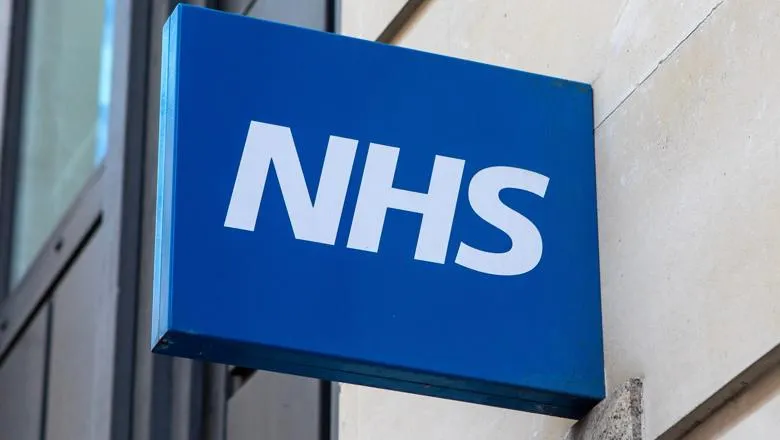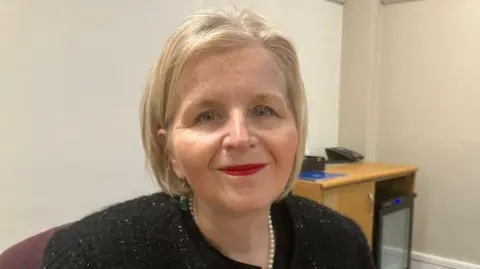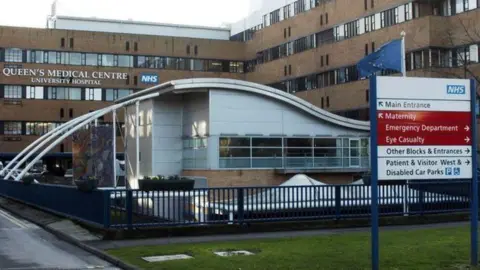UK
Belief that NHS will be there for people when they need it down considerably, study finds
Concerns about the availability of appointments and NHS systems are deterring some from getting GP care

Belief that the NHS will be there for people when they need it has fallen considerably over the last 16 years in Britain, a new study has found.
Between 2008 and 2024, the share of Britons who agreed with this view declined from 82% to 66%. Around one in five (18%) people now feel the NHS won’t be there for them when they need it – double the 9% who held this view in 2008.
The research, by the Policy Institute at King’s College London, King’s Business School and Ipsos, also looks at reported experiences of the health service, finding half the population say they’ve decided against seeing an NHS GP about a health condition in the last year.
Those who didn’t contact their GP for various reasons – such as because they thought they wouldn’t get through on the phone, waiting lists would be too long, or because they didn’t think the NHS would provide good care – are even more likely to disagree the NHS will there for them when they need it.
These latest findings are based on data from a survey of 2,251 people aged 16-75 in Great Britain shortly before the election, between 21 and 24 June.
Half the population say they’ve decided against seeing a GP about a health condition in the last year…
50% of the British population say they had a health condition or issue in the last 12 months that they thought of contacting their GP practice about, but didn’t.
Women (54%) are more likely than men (45%) to say they decided against contacting their GP about a condition, as are those aged 44 and below (59%) compared with older age groups (42%).
…often due to concerns about the availability of appointments and NHS systems
Around a third (37%) of those who didn’t contact their GP say it was because they thought their condition wasn’t very serious or that they could treat it themselves – the top answer given – but similar proportions say they did so because they didn’t think they’d be able to get an appointment (32%), that they wouldn’t be able to get through to the GP practice on the phone (30%), or that waiting times would be too long (28%).
Women (37%) more likely than men (26%) to report not contacting their GP because of a worry about the availability of appointments, while those aged 35 to 54 (37%) are more likely than those aged 55 to 75 (23%) to think they wouldn’t get through on the phone.
Those who didn’t contact their GP about a condition for various reasons are more likely to feel they won’t be able to rely on the NHS when the time comes
People who considered contacting their GP about a health condition before deciding against it (22%) are slightly more likely than the public overall (18%) to disagree that the NHS will be there for them when they need it.
And this rises even higher when looking at those who were put off by long waiting times or concerns about getting an appointment. For example, around a third (32%) of those who believed they wouldn’t get through to their GP on phone do not think they’ll be able to rely on the health service – nearly double the proportion of the public as a whole (18%) who feel this way.
People are looking after themselves at home, seeking advice from the internet, friends and family, or pharmacists instead of seeing GPs
Four in 10 (40%) of those who didn’t bother contacting their GP say they looked after themselves at home instead – the top answer given.
Around two-thirds – 65% – say they sought help or advice from other sources, including the internet, pharmacists or friends and family.
Nearly half say their condition hasn’t improved or has worsened
Of those who considered contacting their GP but didn’t, 45% report that their condition is about the same or worse since they thought about seeking care.
31% say their condition has either gone completely or is much better, while 23% say it’s only a bit better.
And those who give certain reasons for not contacting their GP are more likely to say their condition remained the same or deteriorated. For example, 56% of those who thought the surgery wouldn’t have enough appointments said their condition had remained the same or worsened, as did 57% who thought the NHS wouldn’t provide good care.
One in four say this experience has made them view the NHS more negatively – though a similar share say it’s made them more positive towards it
Among those who decided against contacting their GP about a condition, 27% say the experience has given them a more negative view of the NHS, compared with 22% who say they feel more positively towards it as a result – but the most common response, given by half (50%), is that the experience has not changed perceptions of the health service.
Gerry McGivern, Professor in Public Services Management & Organisation at King’s Business School, said:
“Our new health secretary has pledged to ‘fix the front door to the NHS’, by diverting funding to GPs. Our new survey, conducted just before the general election, shows how vital that could be.”
Dr Sam Van Elk, Lecturer in Management and Organisation at King’s Business School, said:
“Half of the public say they have considered contacting their GP about a health condition, but then didn’t, with many reporting that this is because they didn’t think there would be any appointments, that waiting times would be too long, or they wouldn’t get through to the GP surgery. While much of this forgone care will be for relatively minor conditions, and people can get help elsewhere, nearly half of those who didn’t contact their GP say their condition has not improved or got worse. And, of course, some of these people may then need hospital care, which might have been prevented if they had seen their GP earlier.”
Bobby Duffy, Professor of Public Policy and Director of the Policy Institute at King’s College London, said:
“We have seen a significant decline in public confidence that our health services will be there when we need them over the last 16 years. Back in 2008, eight in 10 of us agreed the NHS would be there when we needed it – but that has fallen to just two-thirds now. There will be a number of reasons for this decline, but faltering belief that we can access our GPs as a first step in our care is very likely to be part of the explanation – a third of those who didn’t contact their GP because they didn’t think they’d get through disagree that the NHS will be there for them, almost twice the level we see across the population as a whole. Increasing resources to frontline GP services is therefore a vital challenge for the new government to address, not just to deliver better and more efficient care, but to help restore confidence in the NHS as a whole.”
Anna Quigley, Head of Ipsos’ Health and Social Care team, said:
“We know difficulties getting a GP appointment frequently top the list of people’s grievances with the NHS, and there are high levels of dissatisfaction about this. This latest research shows low expectations mean some people do not even try to see a GP, and are lacking confidence that the NHS will be there when they need it. It’s no surprise, then, that we also see in other research that the public want the government to prioritise improving access to GPs over access to hospital treatment.”
Survey details
Ipsos interviewed a representative sample of 2,252 people aged 16-75 across the UK. Polling was conducted online between 21 and 24 June 2024. Data are weighted to match the profile of the population. All polls are subject to a wide range of potential sources of error.
Maternity improvements have stalled, says inquiry lead
By Rob Sissons & Verity Cowley,
JULY 11, 2024

Donna Ockenden launched the inquiry into Nottingham's maternity services in September 2022
Improvements at a hospital trust that is being investigated over maternity failings have "stalled", an inquiry chief has said.
Senior midwife Donna Ockenden has been examining how hundreds of babies died or were injured under the care of Nottingham University Hospitals (NUH) NHS Trust.
She said the trust needed to "get back on track" after receiving recent reports of poor standards from concerned families.
The cases of 1,925 families are being reviewed as part of the inquiry.
Ms Ockenden's comments come after it was revealed that the Care Quality Commission (CQC) carried out an unannounced inspection at the Queen's Medical Centre and City Hospital in June.
Staff bypassed management and raised concerns directly with the watchdog regarding the numbers, skills and experience of staff.

An independent review into maternity services at Nottingham University Hospitals NHS Trust is ongoing
Ms Ockenden said the trust was “over-relying” on newly-qualified midwives.
“The findings of the CQC mirror the interim findings and the ongoing work that we are doing around staffing,” she said.
“I am absolutely clear that the trust wants to do the best it can but I think progress has stalled.
"Staff are telling me not enough is being done around skill mix and the juniority of the workforce.
“They are over-relying on newly-qualified midwives who are not appropriately supported."
The CQC report has not yet been published but limited findings were disclosed in NUH board papers.
Concerns had been raised around staffing levels and that the mix of workers’ skills had been insufficient during the health watchdog’s visit.
The independent investigation has been exploring stillbirths, antenatal and neonatal deaths, injured babies and mothers, and maternal deaths dating back more than a decade.
'We are exhausted'
Ms Ockenden said parents who had received maternity care under NUH in recent months had reported concerns to her regarding “a lack of compassion” and poor hygiene on some wards.
Families had also shown her imagery detailing “the poor state” of some areas where bereavement care was provided, she added.
Ms Ockenden said she kept receiving the same feedback from families despite reporting similar issues to the trust in the past.
“The feeling of staff on the ground is that they’re giving of their best,” she said. “They have asked me to tell local people that 'we are exhausted, we are on our knees, but we are genuinely giving of our best'.
“My disappointment is that the feedback I heard from families [on Wednesday] is the same feedback that I provided to the trust up to 18 months ago.
"There remains an awful lot to do."
The trust said an action plan to address any levels of concern had been created and will be monitored through its Maternity Improvement Programme.
Despite concerns raised in the report around staffing, Tracy Pilcher, chief nurse at NUH, said there had been “some key areas of continued improvement” in the CQC’s feedback.
She added: “[The feedback] included improvements to our risk assessments and documentation, positive feedback from the majority of our mothers and the response from our staff.
“However, we know that there is still some way to go, and we are thankful for the feedback and input from the CQC in identifying areas where we do need to continue to focus our improvement.”
The inquiry, which began in September 2022 and looks to establish the extent of avoidable harm that happened, is on track to be published in September 2025.
No comments:
Post a Comment